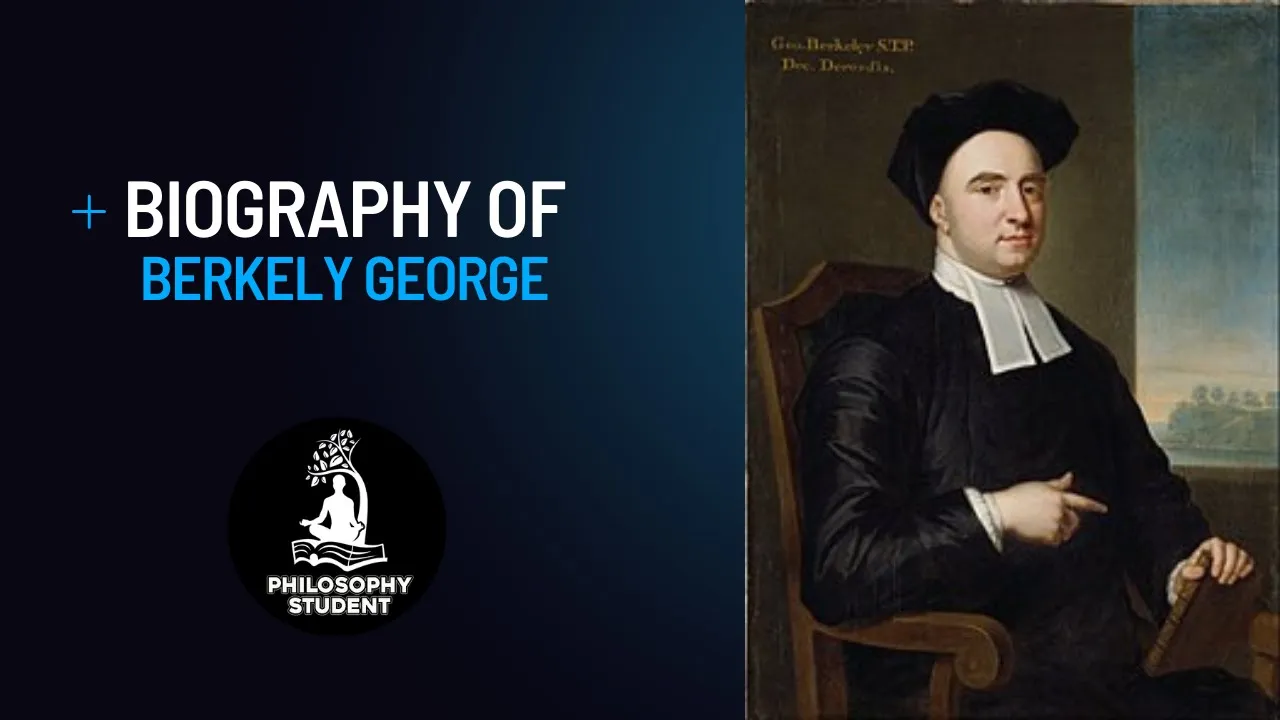Born on March 12, 1685, in County Kilkenny, Ireland, George Berkeley, Bishop of Cloyne, formulated a philosophical theory he called “immaterialism” but that is better known today as subjective idealism. It holds that material things do not exist and that reality is entirely ideal, existing as mental content.
At fifteen, Berkeley left Kilkenny College to enter Trinity College, Dublin, of which he was made a fellow in 1707, three years after graduating. He was ordained in the Anglican Church shortly after this.
Trinity was, at the time, a very modern university, and Berkeley imbibed anti Aristotelianism, which fed into his early philosophical evolution toward immaterialism. His first published work, An Essay Towards a New Theory of Vision (1709), examined the phenomena of visual perception, concluding that the real “objects of sight” do not lie outside of the mind. This adumbration of subjective idealism was elaborated in the 1710 Treatise Concerning the Principles of Human Knowledge. It was in this work that Berkeley sought to refute John Locke’s empiricism by arguing that material “reality” is an illusion and that the experience of the outside world is the creation of internal ideas by experience of external ideas. Berkeley’s theory was that ideas can be produced only by other ideas, and, therefore, the external world is not physical but ideational. It has been given its logic, its ideational form, by God.
In 1720, during a four-year European tour as a tutor, Berkeley wrote De Motu, a philosophical approach to physics, which argued that the forces of which Newton wrote were not physical but “occult” and existed not in the world of phenomena but within an occult realm analogous to the soul. The great twentieth-century Austro-British philosopher Karl Popper saw in De Motu a more powerful version of Ockham’s Razor, the principle that “entities should not be multiplied without necessity,” often paraphrased as the simplest solution is most likely the correct one. Popper dubbed this modification “Berkeley’s razor” and described it as the thesis that the empirical scientific method yields no true picture of the nature of the world, whose truth may be approached only through metaphysical reasoning. As Popper saw it, Berkeley’s analysis of physics yielded an extremely empirical view of scientific observation as beginning and ending empirically, without the possibility of deeper insight.
On his return to Ireland, Berkeley resumed teaching at Trinity until 1724, when he became Dean of Derry. Having decided that Europe was in irreversible spiritual decay, Berkeley began planning to found a college across the Atlantic, in Bermuda. He sailed in 1728 with his young wife, Anne Forster, and landed in Newport, Rhode Island, where he awaited promised funding for the next three years. When it failed to materialize, Berkeley returned to Britain in 1731.
He continued to write, defending his Essay Towards a New Theory of Vision with Theory of Vision, Vindicated and Explained and following it with the Analyst, a critique of Newton’s calculus—in part intended to counter a religious interpretation of Newton that was producing deism, a doctrine Berkeley regarded as heretical.
Berkeley became Bishop of Cloyne in 1734. A decade later, his Siris appeared, which is a peculiar treatise on the medicinal value of tar-water (made by letting pine tar stand in water). The work supplies ample scientific material bolstering the medical claims for tar-water and ends by inviting the reader to a contemplation of God. Berkeley died in Oxford, on January 14, 1753.




































